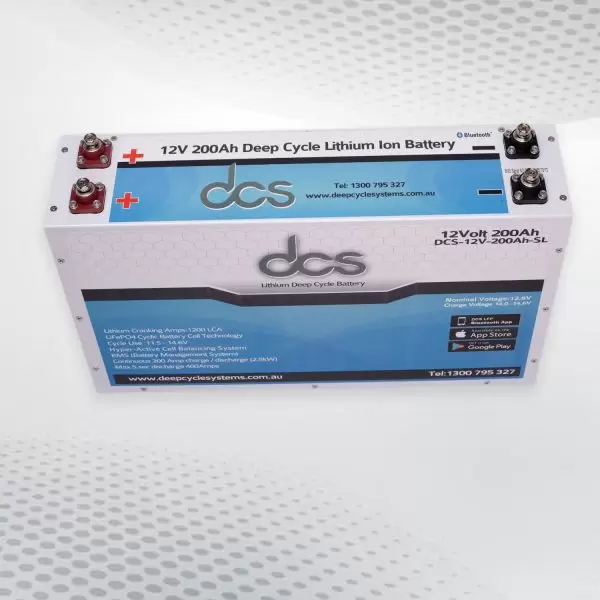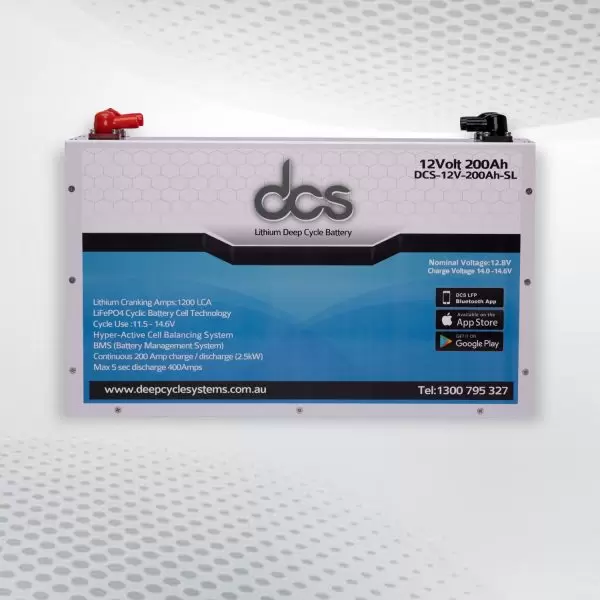Are you looking for a deep-cycle battery that provides powerful and reliable energy? Look no further! We are diving deep into the world of long-lasting power to uncover the best deep-cycle battery on the market. With our extensive research and firsthand experience, we will share everything you need to know to decide on the Best Deep Cycle Battery for your project. Read on to learn more about the features, benefits, and considerations you should consider when choosing a deep-cycle battery.
Understanding the Deep-Cycle Battery
Deep-cycle batteries are designed to provide consistent power over a longer time than other battery types. They are specifically engineered to handle deep discharges and recharges without compromising performance, and understanding how deep-cycle batteries work is essential to choosing the right one for your needs.
At their core, deep-cycle batteries consist of lead plates immersed in an electrolyte solution. When the battery discharges, the lead plates undergo a chemical reaction that releases electrons, generating electrical energy. As the battery recharges, this process is reversed, allowing the lead plates to absorb the electrons and store energy for future use.
Unlike regular batteries, deep-cycle batteries are built with thicker lead plates. These plates are designed to withstand frequent deep discharges without deteriorating, making them ideal for applications that require a steady and reliable power source over a prolonged period. This durability ensures that deep-cycle batteries can handle demanding tasks such as running electrical appliances, powering RVs, and storing renewable energy from solar panels.
Types of Deep Cycle Batteries and Their Uses
Deep cycle batteries come in various types, each designed for specific uses. Understanding the different types will help you choose the one that best suits your needs. Let’s look closely at some common types of deep-cycle batteries and their uses.
- Flooded Lead Acid (FLA) Batteries are the most common type of deep-cycle battery. They use a liquid electrolyte and have a simple design. FLA batteries are versatile and can be used in various applications, including renewable energy systems, golf carts, and marine vehicles.
- Absorbent Glass Mat (AGM) Batteries: AGM batteries are sealed and maintenance-free. They use a fibreglass mat to hold the electrolyte, which makes them spill-proof and resistant to vibrations. AGM batteries are ideal for recreational vehicles (RVs), off-grid solar systems, and backup power applications.
- Gel Batteries: Gel batteries are similar to AGM batteries but use a gel-like electrolyte instead of a fibreglass mat. The gel immobilizes the electrolyte, making them resistant to vibration and deep cycling. Gel batteries are commonly used in medical equipment, wheelchairs, and golf carts.
- Lithium-ion (Li-ion) Batteries: Li-ion batteries are known for their high energy density, lightweight, and long cycle life. They provide reliable power for electric vehicles, renewable energy storage systems, and portable devices.
- Calcium Batteries: Calcium batteries have calcium-alloy grids, which reduce water consumption and self-discharge rates. They are maintenance-free and commonly used in marine applications.
Features to Look for in a High-Quality Deep-Cycle Battery
When choosing a high-quality deep-cycle battery, you should keep a few key features in mind. These features will ensure you get the best performance and value for your money.
First and foremost, consider the capacity of the battery. It refers to the amount of energy it can store, typically measured in ampere-hours (Ah). The higher the capacity, the longer the battery will be able to provide power. So, if you have a project that requires sustained energy over a prolonged period, opt for a deep-cycle battery with a higher capacity.
Another important feature to look for is the voltage of the battery. Deep-cycle batteries typically come in 6-volt, 12-volt, and 24-volt options. The voltage you choose will depend on the specific requirements of your project. For example, most RVs and boats use 12-volt systems, while solar energy systems may require 24-volt batteries.
Additionally, pay attention to the cycle life of the battery. It refers to the number of charge and discharge cycles a battery can undergo before its performance deteriorates. A battery with a higher cycle life will last longer and provide more reliable power.
Comparing Efficiency and Energy Density
Regarding deep-cycle batteries, efficiency and energy density are two important factors. Efficiency refers to how well the battery can convert stored energy into usable power. In contrast, energy density refers to the amount of energy that can be stored in a given volume or weight of the battery.
Efficiency is crucial because it determines how effectively the battery can power your devices or equipment. A more efficient battery will provide longer run times and better performance, making it ideal for applications that require sustained power over extended periods.
On the other hand, energy density is important for applications where space and weight are limited. A battery with higher energy density will allow you to store more power in a smaller and lighter package, making it ideal for portable devices or applications where weight is a concern.
When comparing efficiency and energy density, finding the right balance for your specific needs is important. If you prioritize longer run times and performance, look for a battery with higher efficiency. However, if portability and weight are key considerations, opt for a battery with higher energy density.
Design and Construction of High-Performance Small Deep Cycle Battery
When it comes to Small Deep Cycle Battery, size means something other than sacrificing performance. These compact powerhouses are designed to deliver high performance in a small package.
The design and construction of high-performance small deep-cycle batteries prioritize efficiency, durability, and longevity. To maximize efficiency, these batteries often feature advanced technologies such as enhanced grid design and active material optimization. These advancements allow for higher energy transfer rates and increased overall performance.
Durability is also a key consideration in the design of small deep-cycle batteries. They are constructed using robust materials and reinforced internal structures to withstand the rigours of frequent deep discharges and recharges. It ensures they can handle demanding tasks and continue providing reliable power for extended periods.
Charging Strategies for Prolonging Lifespan
Implementing the right charging strategies is crucial to ensure your deep-cycle battery’s longevity and optimal performance. By following these strategies, you can prolong the lifespan of your battery and maximize its power output.
- Use a suitable charger: The correct charger designed for deep-cycle batteries is essential. A smart charger with multi-stage charging capabilities is recommended as it adjusts the charging process based on the battery’s state of charge and helps prevent overcharging.
- Avoid deep discharges: While deep cycle batteries are designed to handle deep discharges, it is still best to avoid fully discharging them whenever possible. Regularly discharging the battery to only 50-70% of its capacity helps maintain its lifespan and performance.
- Implement a regular charging schedule: Consistently charging your deep cycle battery after each use, even if it is not fully discharged, helps keep it in good condition. Aim to recharge it as soon as possible after use to prevent sulfation, a common issue that can lead to reduced battery capacity.
- Store your battery properly: Store your deep cycle battery in a cool, dry place when not in use. Avoid extreme temperatures and keep it away from direct sunlight. It will help prevent damage and maintain the battery’s performance.
- Perform regular maintenance: Regularly check your battery’s terminals and connections to ensure they are clean and corrosion-free. Cleaning them with baking soda and water can help remove any buildup.

Benefits of Using a 12 V Deep Cycle Battery
Regarding deep-cycle batteries, the 12 V option offers many benefits, making it an excellent choice for various applications. Let’s explore some key benefits of using a 12-V deep cycle battery.
First and foremost, the 12 V Deep Cycle Battery is incredibly versatile. It is widely used in RVs, boats, and other recreational vehicles due to its compatibility with the 12 V electrical systems commonly found in these vehicles. You can power your lights, appliances, and other onboard electronics without additional converters or complicated wiring.
Another benefit of a 12 V deep-cycle battery is its longevity. Deep-cycle batteries are designed to provide consistent and long-lasting power than traditional lead-acid batteries. It means you won’t have to replace the battery as frequently, saving you time and money in the long run.
Additionally, deep-cycle batteries are designed to withstand frequent charging and discharging, making them ideal for off-grid applications. It is particularly important for RV and boat owners who rely on their batteries to power their homes away from home.
Finally, 12 V deep cycle batteries are often more environmentally friendly than traditional lead-acid batteries. Many manufacturers use advanced technology and materials that reduce the environmental impact of production and disposal.
Frequently Asked Questions
Q: What makes deep cycle batteries different from regular batteries?
A: Deep cycle batteries are designed to provide consistent power over a longer period of time. Unlike regular batteries, deep-cycle batteries can handle frequent deep discharges and recharge without compromising performance.
Q: What are the common uses of deep-cycle batteries?
A: Deep cycle batteries have many applications, including powering recreational vehicles (RVs), boats, solar energy systems, electric vehicles, and medical equipment.
Q: What is the best deep cycle battery for my project?
A: The best deep-cycle battery depends on your specific needs and requirements. Factors to consider include capacity, voltage, cycle life, efficiency, and energy density. You can find the perfect battery for your project by evaluating these features.
Q: How do I prolong the lifespan of my deep-cycle battery?
A: To prolong the lifespan of your deep cycle battery, use a suitable charger, avoid deep discharges, implement a regular charging schedule, store the battery properly, and perform regular maintenance.
Conclusion
Choosing the right deep-cycle battery is crucial for powering your projects with long-lasting energy. We have explored the different types of deep-cycle batteries, their uses, and the key features to consider when selecting.



